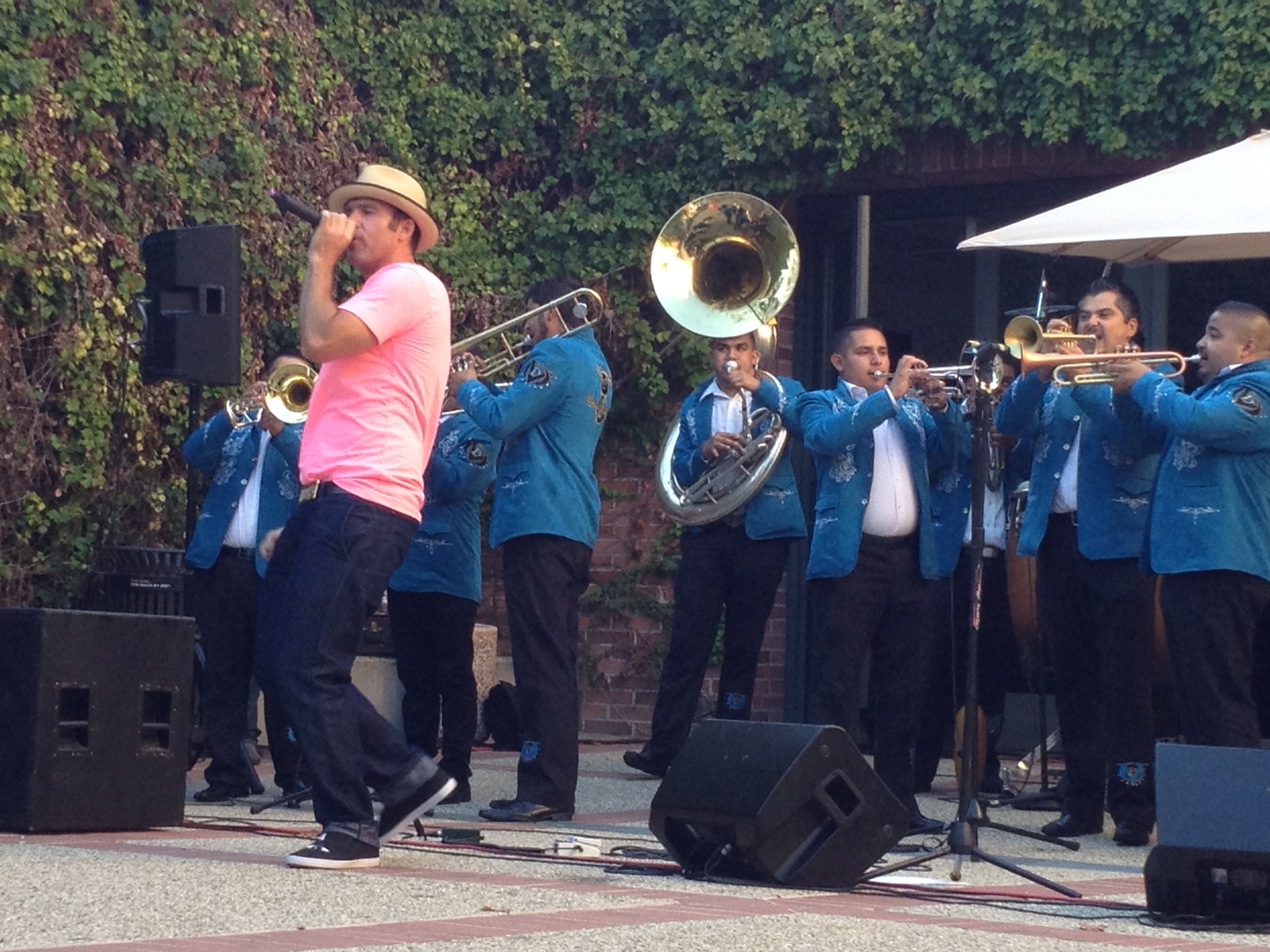On Aug. 19 the ordinarily serene setting of the Fowler Museum’s outdoor courtyard transformed into a wonderland of Spanglish and lively music as it hosted a free concert featuring Banda Viento de Oro and special guests Wil-Dog and Yarel Ramos.
The Fowler and Josh Kun, director of the Popular Music Project at USC, teamed up to help promote the banda culture. The concert was a part of the Summer Sunset Concert series.
Jazmin Morales, a fourth-year ethnomusicology student and the Fowler Out Loud coordinator, said that the event was meant to showcase a piece of Mexican culture and was inspired by its newest exhibit “Curious Creatures from Mexican Popular Arts.”
Numerous families attended the event, either lounging in the grass or sitting on mats to watch the free concert. When Banda Viento de Oro started to play, the tranquil vibe of the courtyard was instantly teeming with energy.
Banda Viento de Oro is a 17-piece musical group consisting of trumpets, trombones, drums, clarinets, a tuba and singers. The group told Kun that they have been performing together since they were in high school, where they originally formed the banda.
Their many years of experience was evident as they gave quite the performance. Dressed in embroidered teal jackets and black dress pants, the whole banda played with enthusiasm to create a wall of sound drawing in passersby. In addition to their vibrant music, the banda performed choreography, making them a delight to watch.
After the first few songs, the banda got the audience engaged in the music. The lead singers left their posts at the microphones to ask a few young ladies to dance. A number of couples joined in, including the pair of Dog and Ramos. The banda described this type of dance as a sort of “roach stomp.”
Between the songs, Kun explored the importance of banda to Mexican culture with short Q&A’s. Ramos, a TV personality from the Spanish network Mun2, explained the importance of the banda culture, particularly in her generation. Many of the musicians explained that they often felt suspended between cultures, but banda allowed them to bridge the gap.
“I think my parents really taught me how to appreciate my culture and love my music. My dad is one of the biggest banda fans, “¦ so I kind of learned through him what it means to be Sinaloense and Mexican in L.A. “¦ This music will forever be a part of me,” Ramos said.
Dog, much like Ramos, explained how banda has been a cross-cultural experience. He said he grew up enjoying rock and punk music, but along the road he started to date a girl who introduced him to banda. He said he knew he loved the music after he heard a singer named Coyote. Dog fell into performing after he filled in for a banda member at another concert. Since then he has become an established banda singer going by the stage name El Gavachillo.
However, he still loves his old rock and punk music, so he has been working on a project to redo some of those songs in banda style. Backed by Banda Viento de Oro, he gave a thrilling banda rendition of The White Stripes’ “Seven Nation Army” debuting his cross-cultural music.
The event was an eye-opening experience, touching on subjects including Mexican culture with art, music and many vibrant personalities. Banda represents the pride that these individuals have toward their backgrounds ““ the places they came from, their ranchero roots and their traditions. In proper banda style, Banda Viento de Oro left the audience not with words but with music.
